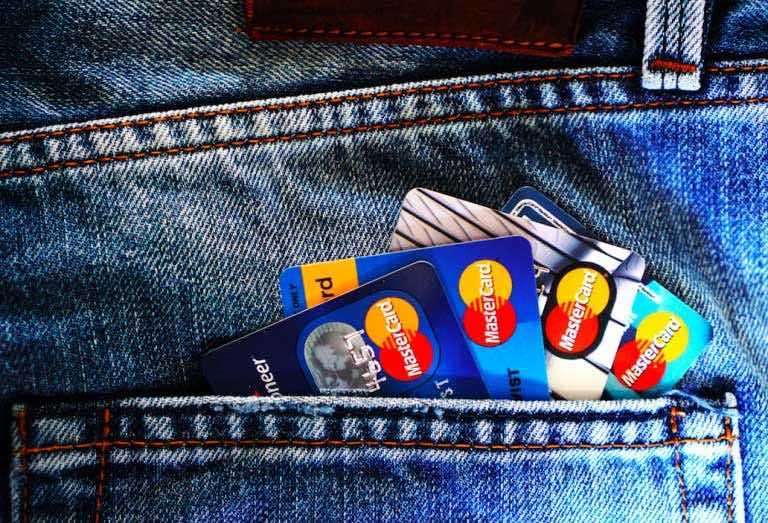Does Closing a Credit Card Hurt Your Credit Score?
Navigating the decision to close a paid-off credit card requires some consideration. While paying off a credit card balance is an achievement worth celebrating, it’s important to understand how doing so may affect your credit score. The choice to keep the account open or to close it involves weighing factors like your credit utilization, credit history, and personal financial goals. Let’s explore how closing a credit card might impact your credit health.

Credit Cards and Your Credit Score
While a good credit score can help you get more favorable loan or credit account terms, like lower interest rates or a higher credit line, a poor credit score can keep you from reaching your financial goals. There are 5 key factors that affect your credit score: credit utilization, payment history, credit mix, age of credit, and credit inquiries. Credit card activity can impact all of these factors, so it’s important to use them responsibly. Closing a paid-off credit card is one of the credit card transactions that can harm your credit score, especially if you are relatively new to credit or have very few credit cards or other loans.
Benefits of Keeping a Paid-Off Credit Card Open
It might be tempting to close a credit card once it’s paid off because it feels like you’ve completed a task that you get to mark off your to-do list. However, you might want to consider some of the benefits to keeping a credit card account open:
- Credit utilization is one of the biggest factors that may impact your credit score. Your credit utilization ratio is a measure of the balances you owe on your credit cards relative to the cards’ credit limits. Learn how to calculate your utilization here. By paying off a credit card, you’re reducing your overall credit utilization, which is great; by keeping the paid-off card open, you’re maintaining your total credit limit across lenders and lowering your overall credit utilization ratio.
- The length of your credit history plays a role in your credit score, too. The longer your credit history, the better, especially with a positive repayment history. Keeping a paid-off card open helps you continue lengthening your credit history.
- Payment history and your ability to make consistent, on-time payments factor into your credit score. If you keep a “paid-off” credit card open, you can make small purchases each month and pay them off immediately to continue showing a positive payment history, which can help improve your credit score.
Does closing a credit card hurt your credit score?
Closing a paid-off credit card can negatively impact your credit score under certain conditions. For example, closing one of your oldest credit accounts may shorten your credit history, which can negatively impact your score. Closing an account may also reduce your available credit, which can impact your credit utilization ratio, a key factor affecting your credit score. And, if you have a limited credit mix, closing your only credit account could impact your score.
Card Lock: An Alternative
An alternative to closing or keeping a card open is to lock your paid-off credit card. Locking a card means it becomes temporarily inactive to new purchases, which can help you avoid unnecessary spending while preserving your credit history and account age—both of which can positively impact your credit score. However, it’s likely that your credit card company will still continue to authorize any recurring charges you already approved, like subscription payments or automatic bill pay. Unlike closing an account, locking a card doesn’t affect your credit utilization ratio as long as the card remains open and is reported to credit bureaus. This is a helpful strategy if you're trying to stick to a budget or reduce your credit usage, all while keeping the benefits of an established account.
Reasons to Consider Closing a Paid-Off Credit Card
While there are benefits to keeping a credit card open, there are also situations where it might make more sense to close the card entirely.
- High annual fees: If you’re struggling to maintain the annual fee, you might consider closing the card.
- Protect yourself from fraud and identity theft: It’s an unfortunate reality, but fraud and identity theft can happen to anyone. Closing a card can eliminate the possibility of that happening to you on that particular card for future transactions.
- Simplifying finances: Reducing the number of cards and payments can be helpful if you often forget to make payments.
When should you close a paid-off credit card?
Everyone’s financial situation is different. You might want to close a paid-off card for reasons that make sense for you, but don’t make sense for someone else. Consider these factors before closing a paid-off credit card:
- Your current credit score and financial goals
- How closing the account could affect your credit utilization and established credit history
- Your overall available credit across your cards and if it would harm you to lose it
- You emergency savings and if it’s enough to cover unexpected expenses
Recap
Closing a credit card can knock points off your credit score, but the impact is typically the biggest if your credit history is limited and/or you have few cards or loans. Before you make any decisions, evaluate your current credit situation and assess your individual needs. Ultimately, make the choice that works for you and only you.


